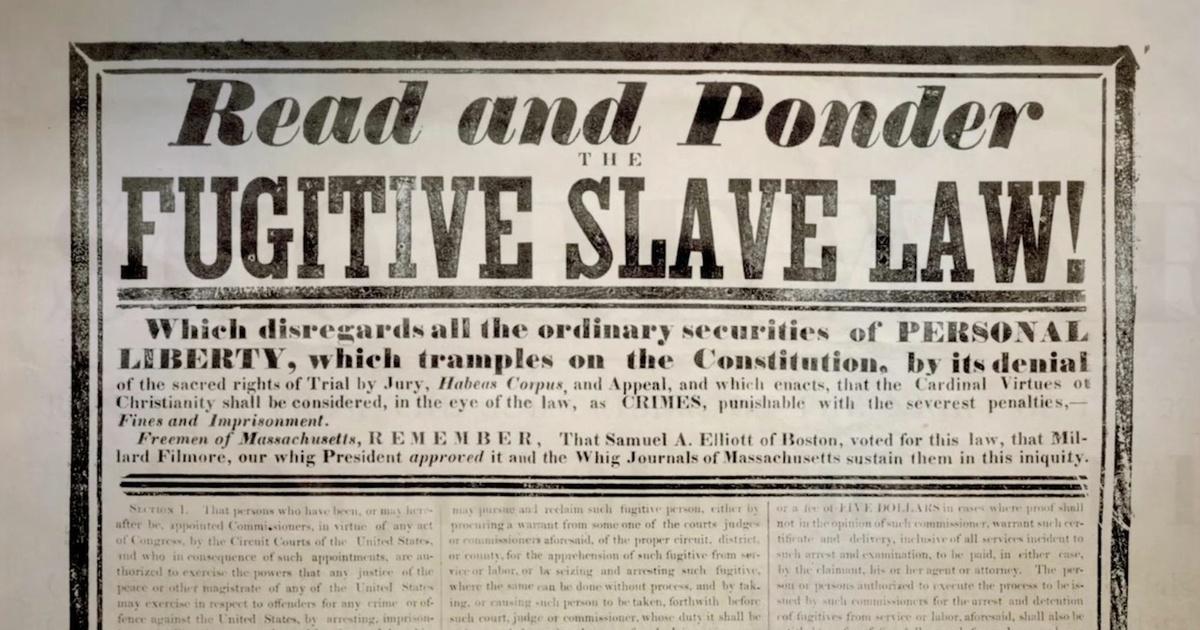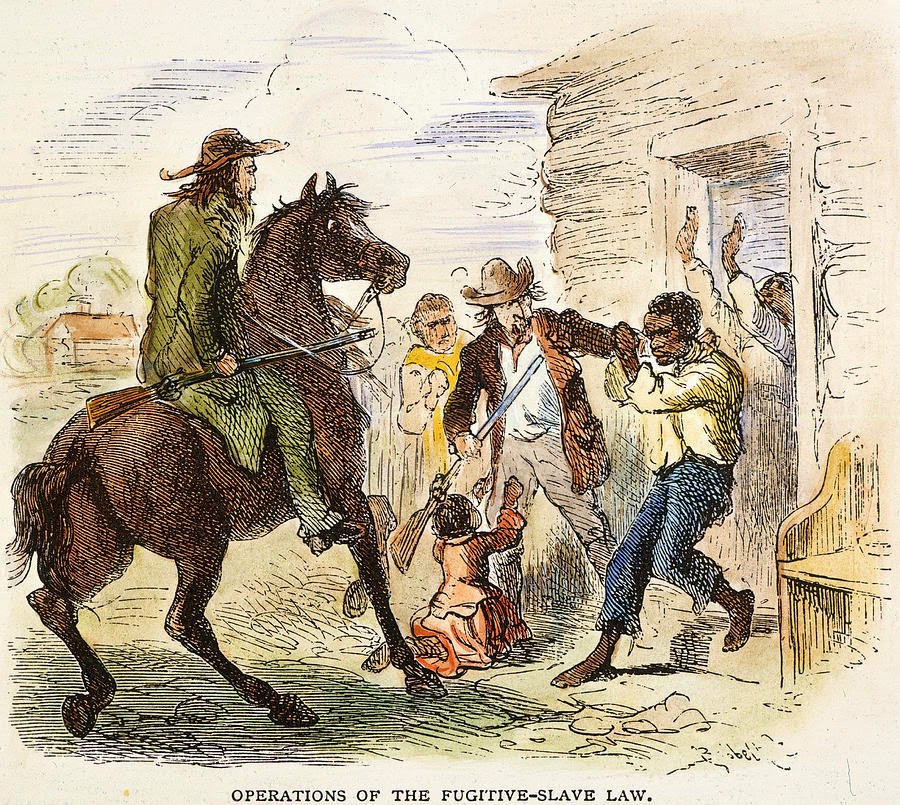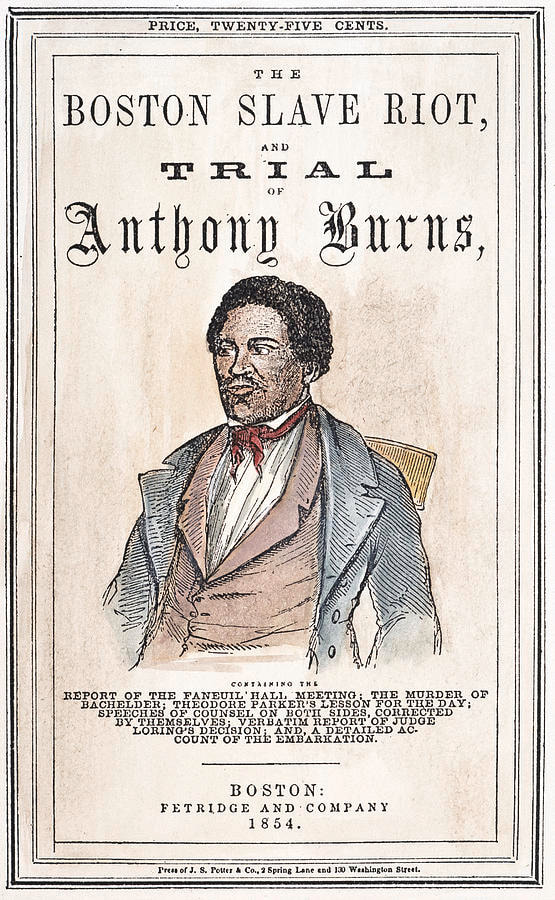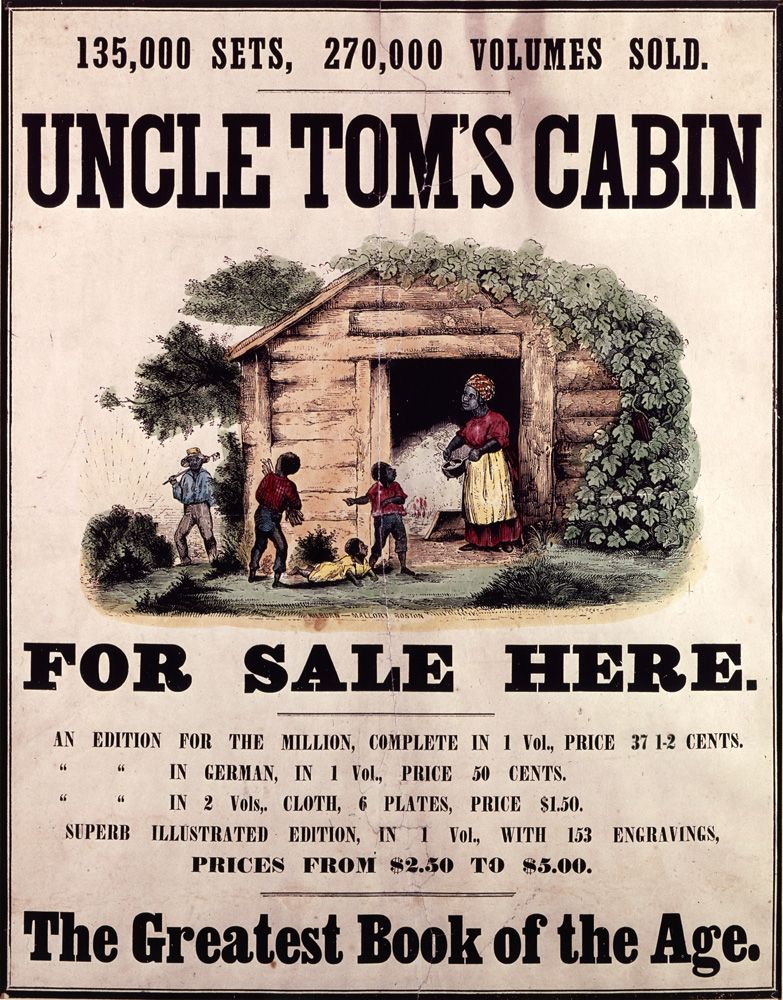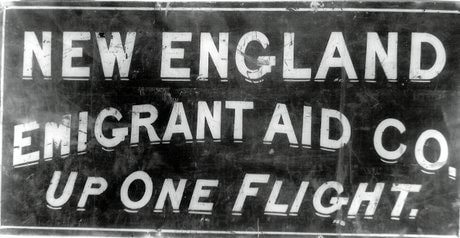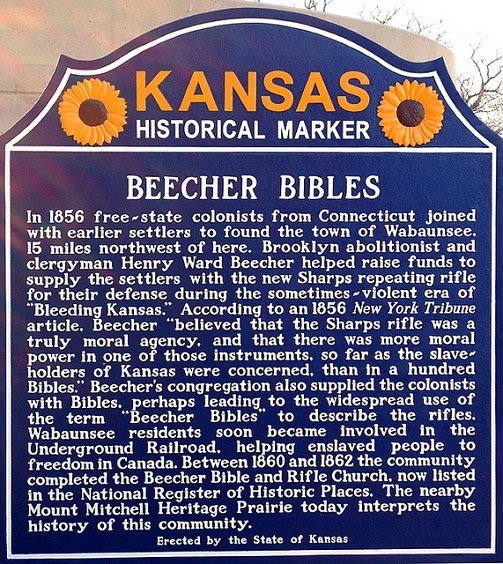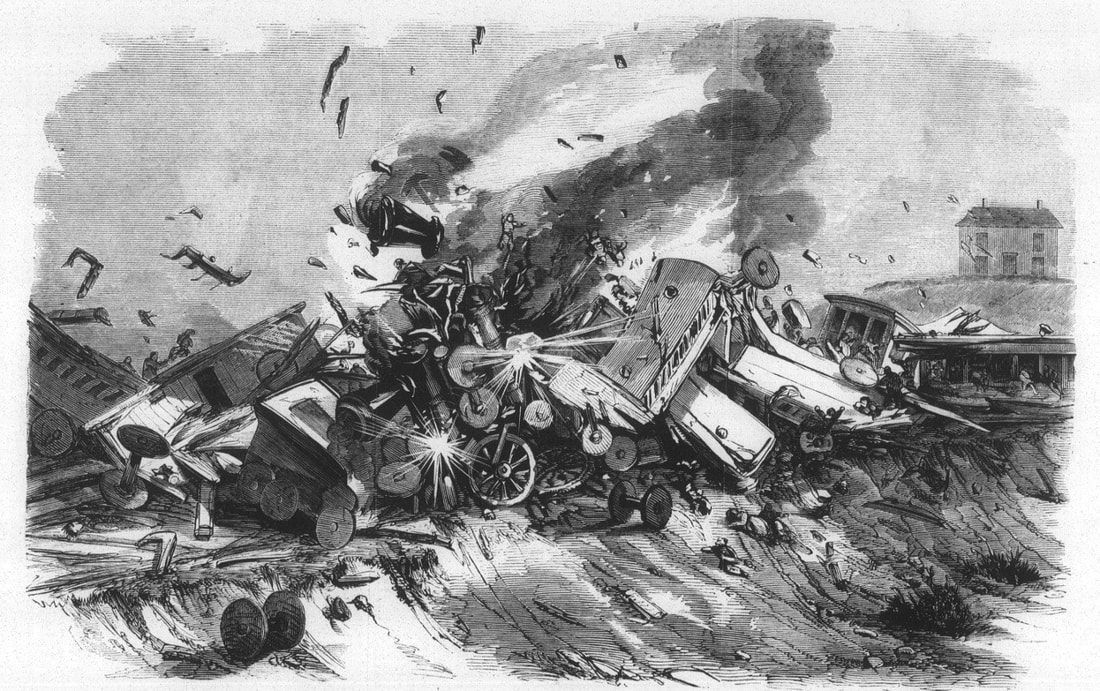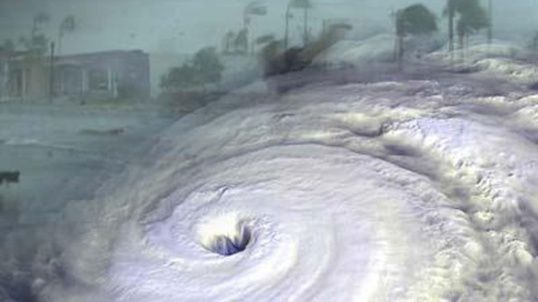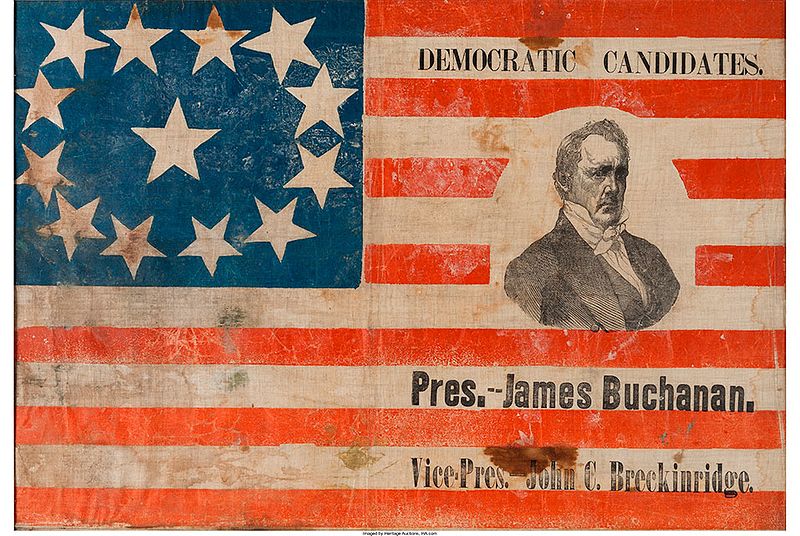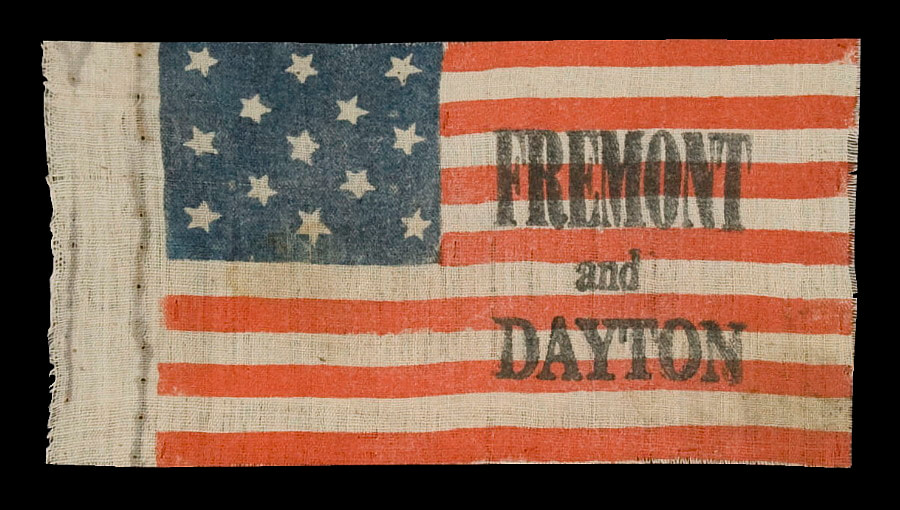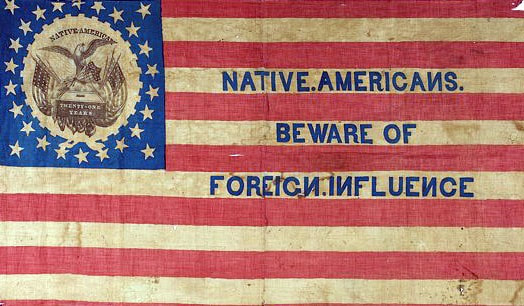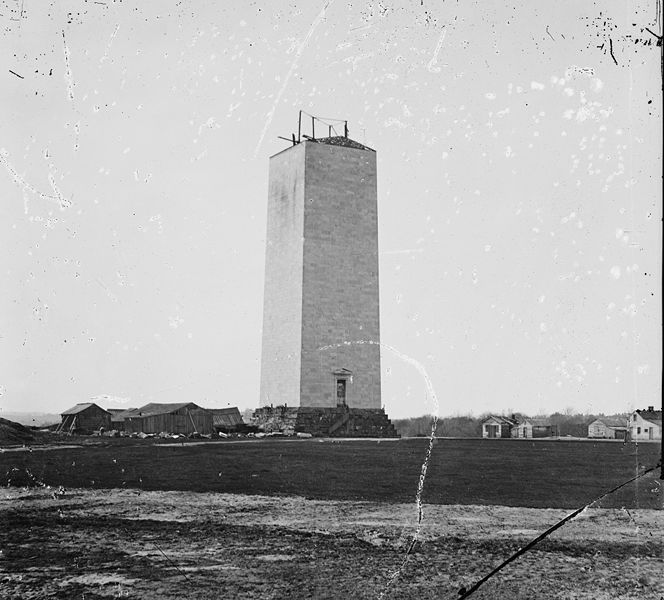Atmosphere and Issues
Sectional tension over slavery, westward expansion, the influx of immigrants and the Union’s future were on the minds of voters in 1856.
The Kansas-Nebraska Act of 1854, lead to what is known as "Bleeding Kansas", the fight between pro-slavery and anti-slavery forces most who were not residence in the state. Coupled with the increased federal enforcement of the Fugitive Slave Law ignited emotions that no one could have foresee. The bill divided the land west of Missouri into two territories, Kansas and Nebraska, and provided for "popular sovereignty" meaning the settlers of those areas could determine if they would allow slavery. On its own that would seem reasonable and democratic. However, if you take a look at the following key events and laws it was inevitable individuals for various reasons would not support it.
The Kansas-Nebraska Act of 1854, lead to what is known as "Bleeding Kansas", the fight between pro-slavery and anti-slavery forces most who were not residence in the state. Coupled with the increased federal enforcement of the Fugitive Slave Law ignited emotions that no one could have foresee. The bill divided the land west of Missouri into two territories, Kansas and Nebraska, and provided for "popular sovereignty" meaning the settlers of those areas could determine if they would allow slavery. On its own that would seem reasonable and democratic. However, if you take a look at the following key events and laws it was inevitable individuals for various reasons would not support it.
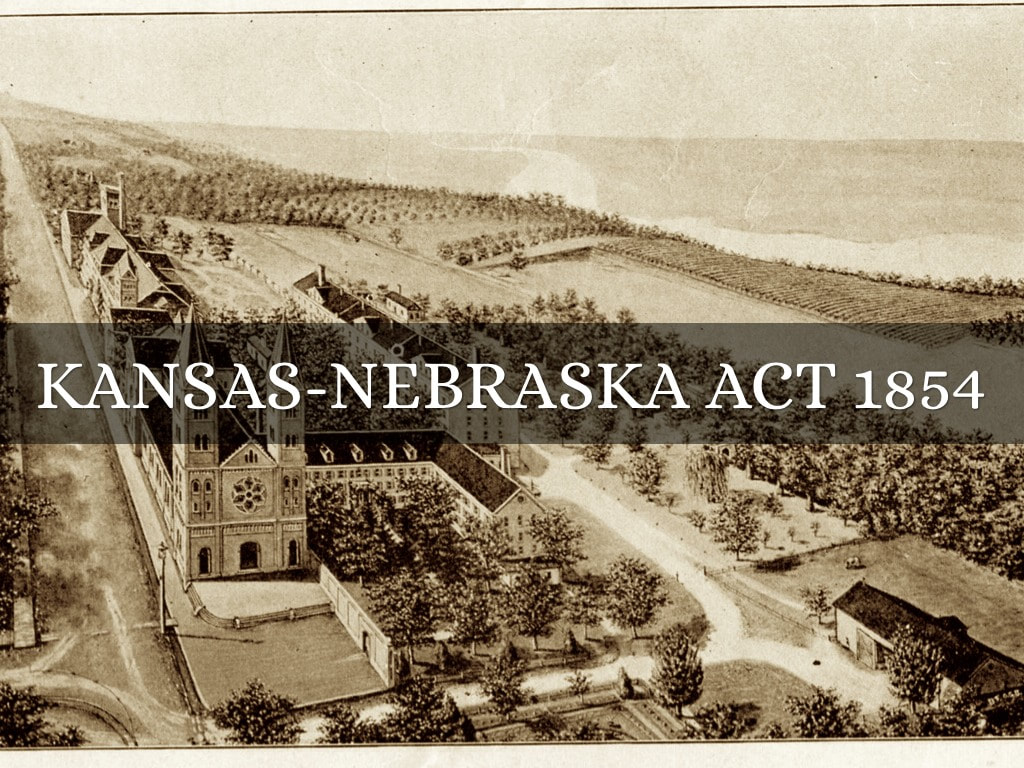
The Fugitive Slave Act of 1850 compelled local governments and citizens to return runaway slaves to their owners while imposing fines and possible jail time for anyone who attempted to help them. It denied slaves a right to a jury trial and hired federal commissioners to actively find and return runaways for monetary gain.
|
Images are linked to additional information.
The Fugitive Slave Act enraged abolitionist like Harriet Beecher Stowe who went on to publish Uncle Tom's Cabin in 1852. It became one of the best propaganda organs against slavery selling over three million books in one year. |
An influx of Northerner’s coordinated by the New England Emigrant Aid Society established an anti-slave community in Lawrence, Kansas including building a “Free State Hotel”. With the help of abolitionist they were supplied with firearms referred to Beecher’s Bibles. Henry Beecher was a popular preacher and brother of Harriet Beecher Stowe. |
The Background
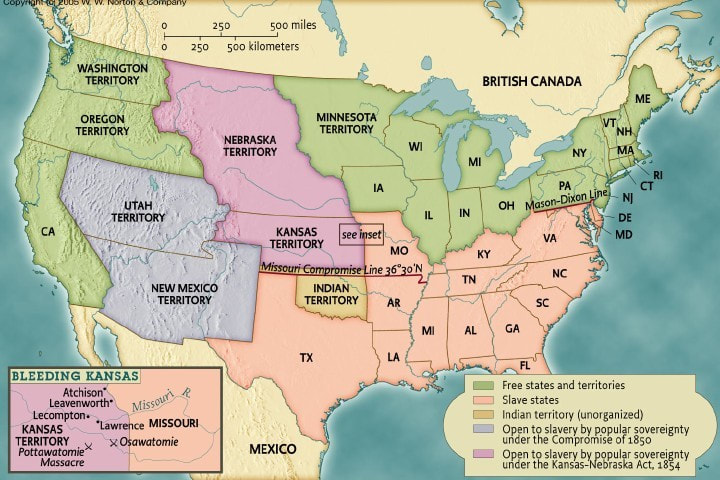
1787 Northwest Ordinance
1803 Louisiana Purchase
1820 Missouri Compromise
Compromise of 1850
1854 Kansas Nebraska Act
The Northwest Ordinance of 1787 established guidelines for westward expansion and procedures for territories to become states. One of the stipulations was slavery and involuntary servitude was prohibited. In 1803 the Louisiana Purchase doubled the size of the United States.
In 1820 Congress passed the Missouri Compromise to appease the sectional tensions over equal representation in the Senate of slave and free states. It admitted Missouri as a slave state and Maine as a free state, while prohibiting slavery in lands located north of the 36 30 parallel of the remaining Louisiana Purchase land. At the time these lands were assumed to be inhabitable by civilized individuals so considered a non-issue to slave states.
Logistically, once we admitted California as a state in 1850 the Missouri Compromise was never going to work. The 2,000 miles of undesirable wilderness between coasts often called the big dessert seemed appealing with Fremont's expeditions glorified in print, the competition for a transcontinental railroad and the discovery of gold.
The Compromise of 1850 applied to land annexed following the Mexican War; land not acquired in the Louisiana Purchase. It admitted California as a free state, established Utah and New Mexico as territories under popular sovereignty, permitted slavery in Washington, D.C., but outlawed the slave trade there, defined new boarders for Texas and enhanced the Fugitive Slave Act of 1793.
In 1820 Congress passed the Missouri Compromise to appease the sectional tensions over equal representation in the Senate of slave and free states. It admitted Missouri as a slave state and Maine as a free state, while prohibiting slavery in lands located north of the 36 30 parallel of the remaining Louisiana Purchase land. At the time these lands were assumed to be inhabitable by civilized individuals so considered a non-issue to slave states.
Logistically, once we admitted California as a state in 1850 the Missouri Compromise was never going to work. The 2,000 miles of undesirable wilderness between coasts often called the big dessert seemed appealing with Fremont's expeditions glorified in print, the competition for a transcontinental railroad and the discovery of gold.
The Compromise of 1850 applied to land annexed following the Mexican War; land not acquired in the Louisiana Purchase. It admitted California as a free state, established Utah and New Mexico as territories under popular sovereignty, permitted slavery in Washington, D.C., but outlawed the slave trade there, defined new boarders for Texas and enhanced the Fugitive Slave Act of 1793.
A Reality Check
|
Man-made and Mother Nature
|
The Third Week in May 1856
|
|
The violent week of May 21,1856 was a pivotal step towards Civil War. The sacking of Lawrence, Kansas, the Pottawatomie Creek massacre, and the beating of Senator Charles Sumner of Massachusetts over “The Crimes Against Kansas” speech cemented the divide between North and South. Newspapers reported each event with their particular slant agitating the tension. The abolitionist papers that had a strong distribution platform inside and out of Kansas were no matches for the pro-slavery papers reporting mainly in the state.
Less then 20 lives were lost in the Kansas conflict, far less, then the casualties of the Picnic Train wreck and the Hurricane of 1856 - two events forgotten with time |
Parties in Turmoil
|
